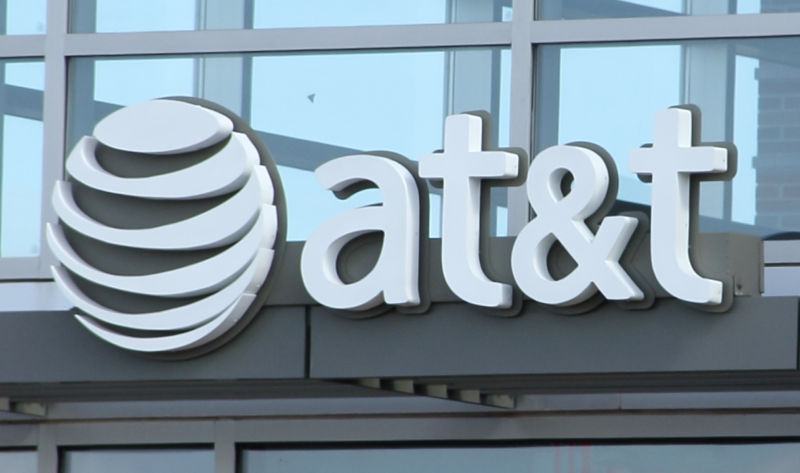
Despite a study showing that 98.5 percent of individually written net neutrality comments support the US's current net neutrality rules, AT&T is claiming that the vast majority of "legitimate" comments favor repealing the rules.
The Federal Communication Commission's net neutrality docket is a real mess, with nearly 22 million comments, mostly from form letters and many from spam bots using identities stolen from data breaches. AT&T is part of an industry group called Broadband for America that just funded a study that tries to find trends within the chaos.
As we wrote earlier today, that study (conducted by consulting firm Emprata) found that fewer than 1.6 million filings appear to have "originated from individuals that took the time to type a personalized comment." Of those, 1.52 million were against FCC Chairman Ajit Pai's plan to repeal the current Title II net neutrality rules, while just 23,000 were in favor of repeal.
Let's contrast that finding with what AT&T Executive VP Joan Marsh wrote in a blog post today:
While Title II proponents may claim that millions of consumers representing the large majority of commenters support Title II, in fact, most of these comments were not legitimate. And when only legitimate comments are considered, the large majority of commenters oppose Title II regulation of Internet access.
In related comments filed with the FCC today, AT&T accused Title II proponents of "stuff[ing] the... ballot box with millions upon millions of sham 'comments.'"
AT&T analysis doesn’t account for spam bots
Marsh's blog post does not refer directly to the Emprata study. Instead, it links to a Multichannel News article that describes Broadband for America's interpretation of the study. The broadband industry lobby group argues that 69.9 percent of legitimate comments support repealing the rules.
After linking to that article, Marsh writes that most comments on the FCC docket "appear to us to be fraudulent. Millions of comments were generated using phony e-mail addresses. Millions of others were generated using duplicative e-mail or physical addresses. And still others originated overseas. Consider this: nearly 450,000 comments were filed using Russian addresses, all but four in support of Title II regulation of Internet services."
That all appears to be true, but that doesn't prove that the majority of legitimate comments oppose the current Title II net neutrality rules.
Marsh reasonably excludes millions of comments that appear to be have been submitted with fake contact information, such as e-mails with artificial domains or that were submitted multiple times using the same contact information. But the docket is also filled with spam comments falsely attributed to people whose names and addresses were taken from data breaches. These comments would appear to come from real people despite being fraudulent, yet AT&T did not mention this problem.
Most comments on the docket are based on form letters, i.e. blocks of text pre-written by advocacy groups and ostensibly submitted by real people who agree with the sentiment.
Form letter comments are often legitimate expressions of support or opposition to the current rules, but many of them were also submitted by spam bots, not the actual people whose names are attached to the comments. One anti-net neutrality form letter comment whose spread was attributed at least partly to a bot has appeared on the docket more than 800,000 times under various names, for example.
People who say their names and addresses were attached to anti-net neutrality comments without their permission asked the FCC to remove fraudulent comments from the docket, but the FCC has not done so. Given that these comments were submitted under real people's names and addresses, they would apparently count as "legitimate" opposition to net neutrality rules in AT&T's analysis. The Emprata study examined fake e-mail addresses and duplicate addresses, but did not mention the problem of identities from data breaches being used to fake opposition to net neutrality rules.
Conclusions depend on your definition of “real”
Today is the final day of the public comment period on the FCC proposal to eliminate the Title II common carrier classification of broadband providers and repeal or replace the net neutrality rules against blocking, throttling, and paid prioritization.
The anti-Title II crowd relied on form letters more heavily than the pro-Title II crowd; 99.6 percent of anti-Title II comments came from form letters while 89.8 percent of pro-Title II comments were based on form letters, according to Emprata.
AT&T led a form-letter campaign itself; the company claimed to be in favor of net neutrality rules while trying to convince its customers to support repealing the current rules.
A tally of all 21.8 million comments evaluated in the Emprata study, regardless of their origin, found that 60 percent supported keeping the current rules and 39 percent supported repealing them. Emprata noted that the results shift in the other direction (61 percent against the current rules) if you exclude comments with fake e-mail addresses.
But the exclusion of fake e-mail addresses doesn't guarantee that all of the remaining comments are legitimate. That's because of the spam bot problem we just described.
Emprata notes that "it is very difficult to draw any definitive conclusions from the comments found in the docket. Any conclusions that one might draw from the data would be based on the subset of data that [one] considered to be 'real.'"
Net neutrality advocacy group Fight for the Future argues that the most "real" comments are the ones written by individuals. Fight for the Future has led form letter submission campaigns itself, but recognizes that it takes more effort to write one's own comment.
"The most telling statistic in the report is that the unique comments in the docket—the ones that people took the extra time to write themselves—are overwhelmingly in favor of Title II net neutrality protections, by more than 73 to 1," the group said.
reader comments
112